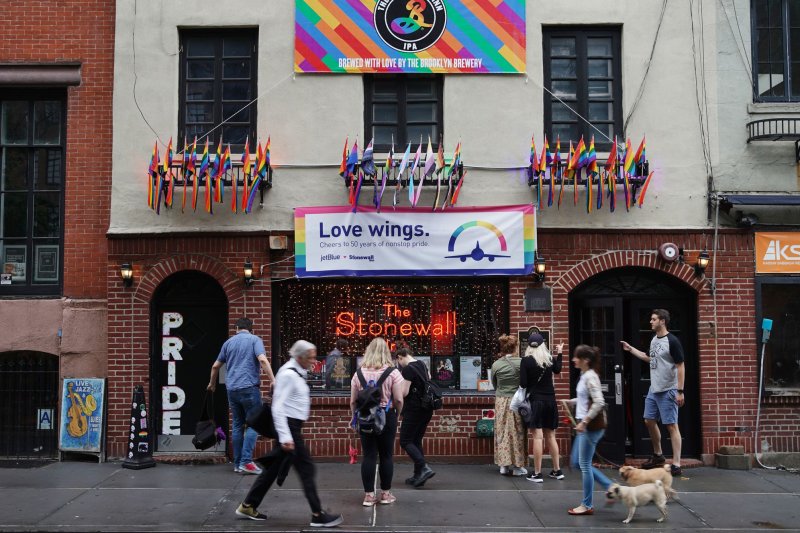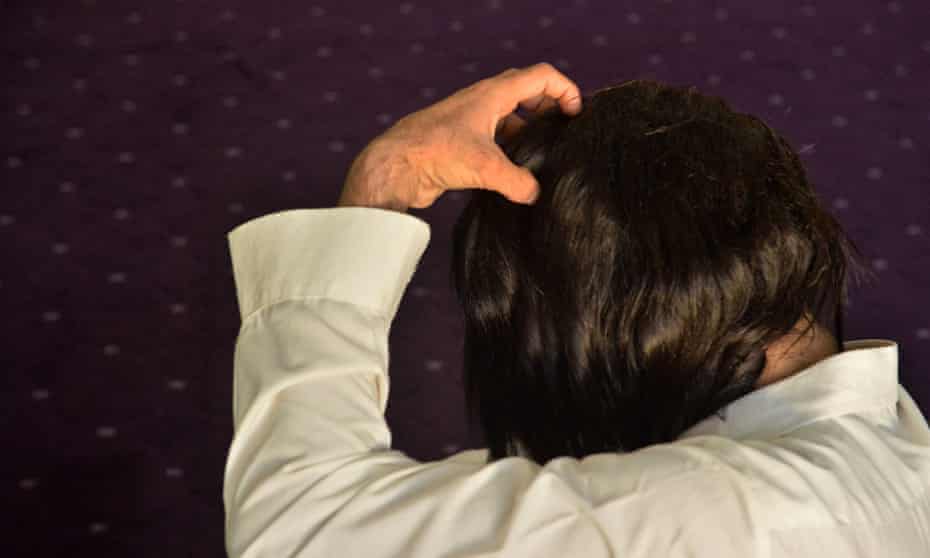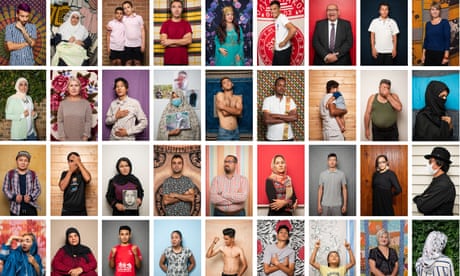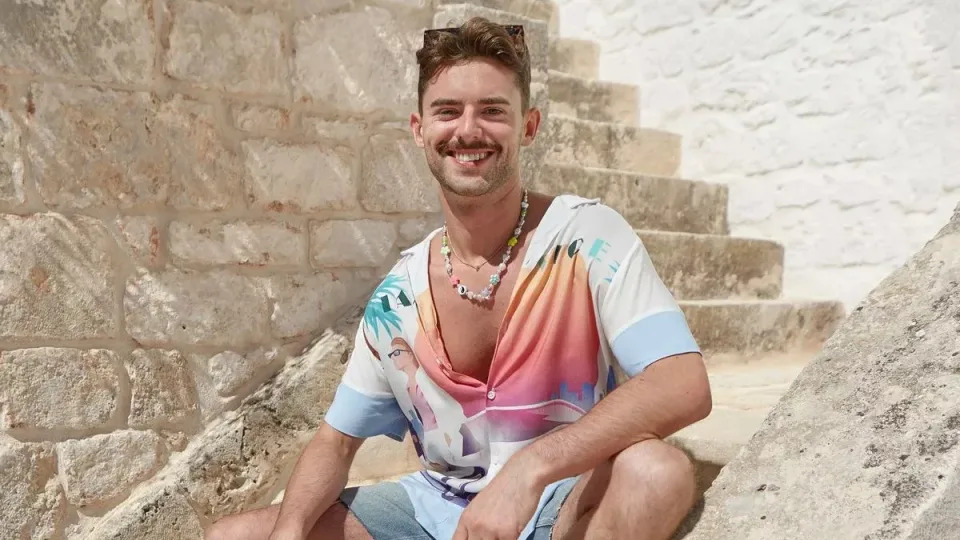BY SAM DAMSHENAS
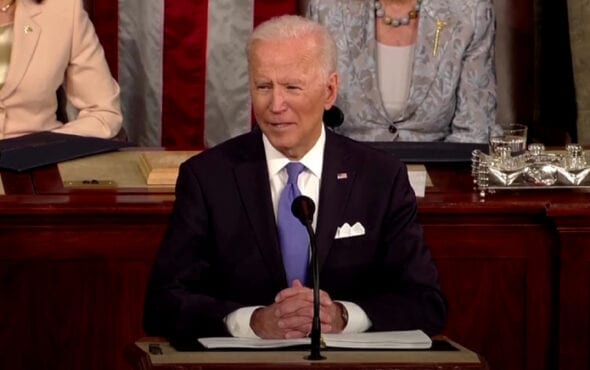
Joe Biden has proven his status as one of the most inclusive presidents in history with his essay for Pride Month.
The US president began his proclamation by remembering the Stonewall Uprising of 1969, calling the liberation movement a “call to action that continues to inspire us to live up to our Nation’s promise of equality, liberty, and justice for all,” before reaffirming his commitment to LGBTQ+ Americans in their “ongoing struggle against discrimination and injustice”.
Biden proceeded to recognise the “remarkable progress” that’s been made since Stonewall, including marriage equality and workplace protections for LGBTQ+ citizens, as well as the Matthew Shepard and James Byrd, Jr. Hate Crimes Prevention Act, which “broadened the definition of hate crimes to include crimes motivated by sexual orientation or gender identity”.
“Members of the LGBTQ+ community now serve in nearly every level of public office — in city halls and State capitals, Governors’ mansions and the halls of the Congress, and throughout my Administration,” said Biden.
Biden continued to say that he’s “honoured” to have the service of Pete Buttigieg, Transportation Secretary, who made history as the first openly LGBTQ+ person to serve in the Cabinet, and Assistant Health Secretary Dr. Rachel Levine, who made history as the first openly transgender person to be confirmed by the Senate.
Later, Biden addressed the lack of protections for LGBTQ+ individuals in areas such as hospitals, schools and public accommodations, and the ongoing violence against transgender women of colour in the United States.
“LGBTQ+ individuals — especially youth who defy sex or gender norms — face bullying and harassment in educational settings and are at a disproportionate risk of self-harm and death by suicide,” explained Biden.
“Some States have chosen to actively target transgender youth through discriminatory bills that defy our Nation’s values of inclusivity and freedom for all. Our Nation also continues to face tragic levels of violence against transgender people, especially transgender women of color.
“And we are still haunted by tragedies such as the Pulse Nightclub shooting in Orlando. Ending violence and discrimination against the LGBTQ+ community demands our continued focus and diligence. As President, I am committed to defending the rights of all LGBTQ+ individuals.”
In his proclamation, Biden promised to take “historic actions” to ensure full equality for LGBTQ+ families and referred to his first day as president, in which he signed an executive order “to fully enforce all Federal laws that prohibit discrimination on the basis of gender identity or sexual orientation.”
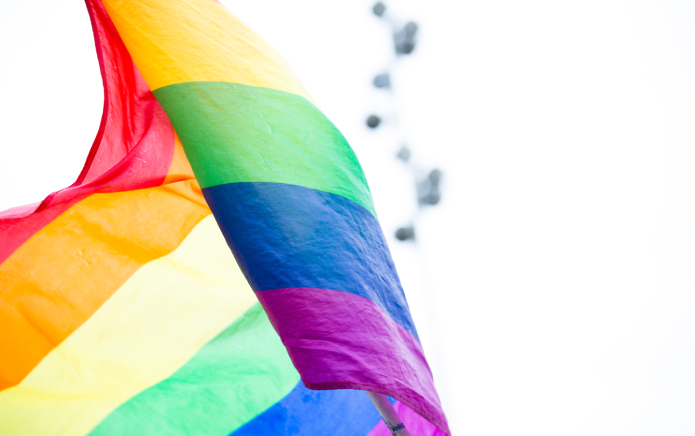
Pexels
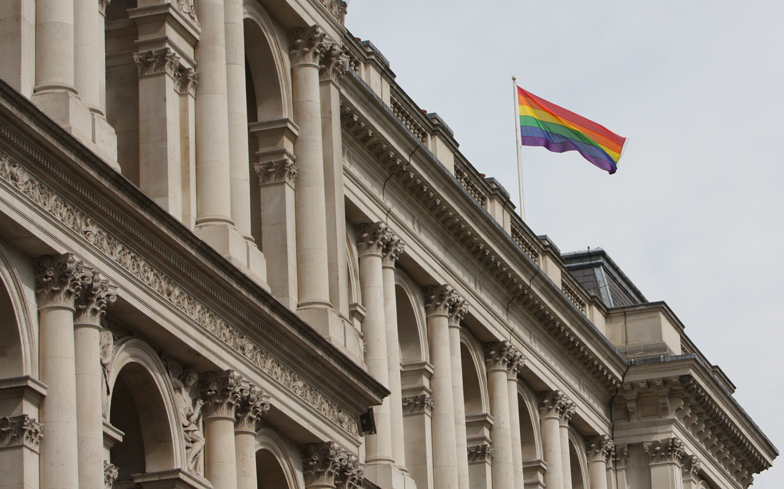
US State Department calls for Ghana national leaders to support LGBTQ+ rights
Biden has also signed an order “affirming all qualified Americans” will be able to serve in the Armed Forces of the United States — including patriotic transgender Americans who can once again proudly and openly serve their Nation in uniform — and a National Security Memorandum that commits to supporting LGBTQ+ Federal employees serving overseas.
“My Administration is also working to promote and protect LGBTQ+ human rights abroad. LGBTQ+ rights are human rights, which is why my Administration has reaffirmed America’s commitment to supporting those on the front lines of the equality and democracy movements around the world, often at great risk.”
Biden concluded his proclamation by telling his LGBTQ+ followers that he will “not rest” until equality is finally achieved and “codified into law”, before officially proclaiming June 2021 as LGBTQ+ Pride Month to “celebrate the great diversity of the American people and to wave their flags of pride high.”
The proclamation is the first for a US president since Barack Obama, after the two-time impeached television personality Donald Trump deserted the practice. He also denied several US embassies the right to fly rainbow flags for Pride Month.
In April, the Biden Administration overruled that ridiculous decision and announced that all US embassies can fly the flag, marking a stark contrast in Biden and Trump’s stances on LGBTQ+ equality and visibility.
You can read Joe Biden’s proclamation for Pride Month here in full.
June is Pride Month. See how you can get involved, whether it's from your couch or marching down the road.
Katie Conner
June 1, 2021
CNET

Celebrate Pride Month from your home or at an event.James Martin/CNET
June marks the 51st celebration of Pride Month -- a time when millions of people come together in support of the LGBTQ community. This year, many celebrations across the globe will resume as COVID-19 restrictions are lifted and more people are vaccinated.
So why does Pride Month take place in June? It goes back to June 28, 1969, when police raided a gay club called the Stonewall Inn in New York. Though the police claimed the bar was operating with an improper liquor license, the raid was about nothing more than violently harassing and arresting LGBTQ people in one of the few places where they felt safe. Similar raids on gay-friendly businesses had been occurring for decades, but Stonewall was one of the first times when the patrons fought back. A diverse crowd of lesbians, gay men and transgender women, many of whom were people of color, clashed with the police, threw bottles and refused to be intimidated. The six-day period of protests and demonstrations is now known as the Stonewall Riots. A New York rally held the next year to commemorate the first anniversary of the riots started the now-regular tradition of Pride Month
Below, we've suggested ways you can get involved, what you can watch and read, and other ways to celebrate the LGBTQ community.
Attend a Pride parade or festival
This year, some Pride Month festivities will resume in person, depending on where you live. However, many have been postponed until later this year or next due to the coronavirus. If you can't find a parade in your area (you can search "Pride parade Chicago," for instance), see if there are other events you can attend.
San Francisco, for example, will not have a parade, but will have a Pride movie night with face masks and social distancing required. Los Angeles will have two outdoor Pride events. See this calendar for more Pride events happening around the world in June.
Atlanta Pride Run is also happening this year in person. The run is for generating LGBTQ awareness in the community. You can also participate in this event virtually -- see below.
You can also find Pride events for different parts of the LGBTQ community including women, transgender people and people of color.

Netflix has many shows and movies for Pride Month.César Salza/CNET
Support Pride organizations by donating
Can't make it to any events but would like to support the LGBTQ community? You can do so by donating to Pride organizations. The International LGBTQ Travel Association organization helps provide marketing support to LGBTQ businesses.
What to watch for Pride Month -- and where
Netflix has a genre page for Pride Month, including movies, TV shows, documentaries, GLAAD award nominees and more. New seasons of Feel Good and Elite will also be available in June, Netflix told CNET.
Hulu has a designated page for Pride Month, as well. A popular option is the documentary, Pride.
CNET editors also have recommendations for LGBTQ movies and shows to watch in June -- or any other time. Some of these include The Death and Life of Marsha P. Johnson, Portrait of a Lady on Fire and Moonlight.
What to read during Pride Month
Here's what CNET editors recommend adding to your reading list this summer.
The Song of Achilles by Madeline Miller
Less by Andrew Sean Greer
In the Dream House by Carmen Maria Machado
Rainbow Boy by Taylor Rouanzion
Julián Is a Mermaid by Jessica Love
Red, White and Royal Blue by Casey McQuiston
Boyfriend Material by Alexis Hall
The Seven Husbands of Evelyn Hugo by Taylor Jenkins Reid
Punch Me Up to the Gods: A Memoir by Brian Broome
Reach out to your company's diversity and inclusion groups
If you'd like to get involved for Pride Month at work, you can contact your company's diversity and inclusion groups to see how you can help. You could help coordinate a virtual event where you play trivia games and decorate your Zoom background with a Pride flag. If your company doesn't have any Pride events scheduled, consider organizing one yourself

Host a Pride event on Zoom for your company.Sarah Tew/CNET
How to show your support from home
There are plenty of ways to show your support from home. We've listed several to get you started.
Hang a Pride flag outside your home.
Place a Pride sticker on your car.
Host your own Pride-themed movie night.
Wear some Pride clothing.
Join virtual events.
Be an ally to your LGBTQ colleagues, friends and family members.
Support LGBTQ organizations in schools.
Support businesses that support the LGBTQ community.
Celebrate virtually
If there's not a Pride event happening near you, don't fret. There are plenty of ways to celebrate virtually, and even watch Pride parades and events happening around the world. You can also participate in events virtually -- for instance, the Atlanta Pride Run has a virtual option you can sign up for and run anywhere you want (plus, it comes with a shirt).
Look up events you're interested in watching or being a part of, even if it's in another country, because there will likely be a link for viewing. Here's a calendar of Pride events happening around the world.
First published on June 1, 2021 at 4:15 a.m. PT



